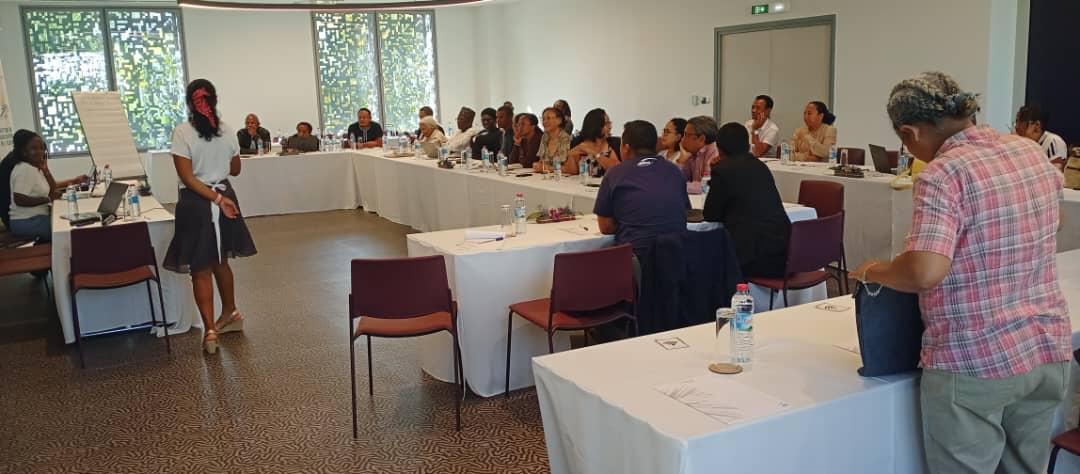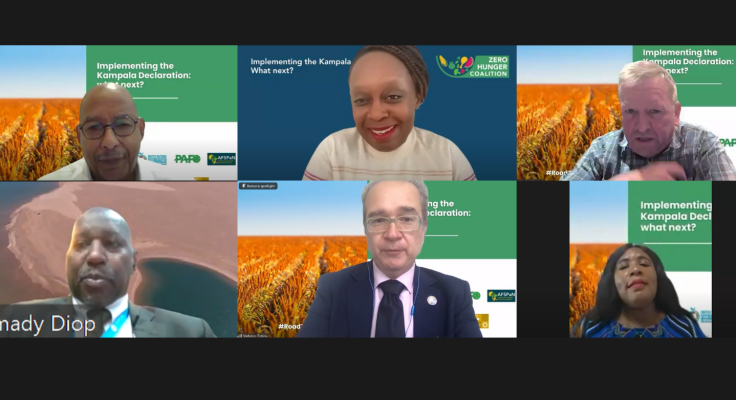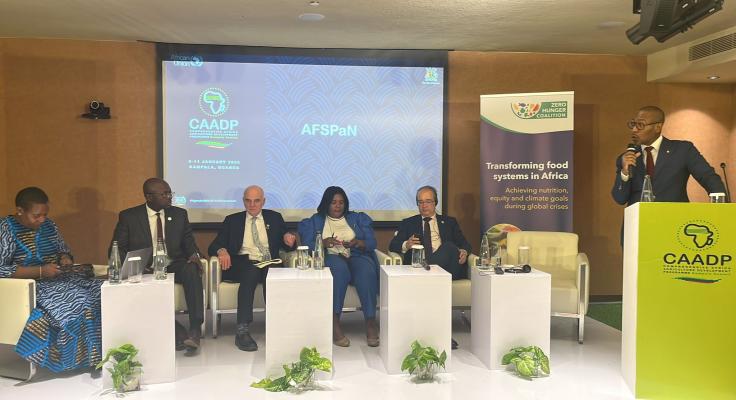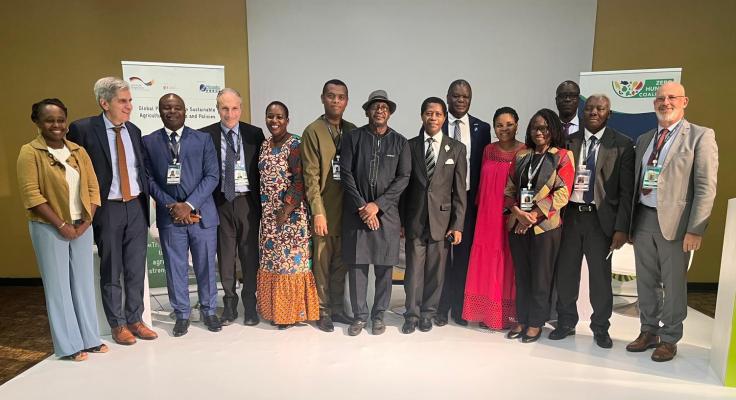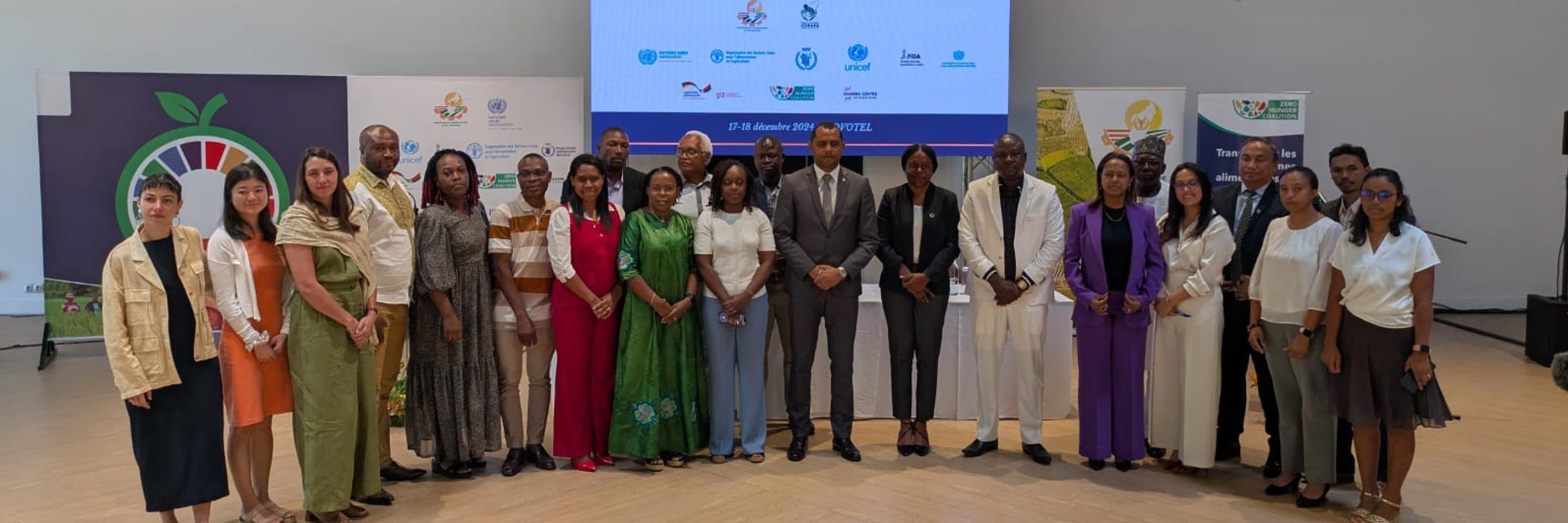
Mission to Madagascar: Day 2
The Zero Hunger Coalition is currently in Madagascar supporting the finalization of the country's Action Plan for the operationalization of its National Roadmap for Food System Transformation. The ZHC is joined by a delegation from Benin and the Democratic Republic of the Congo as part of the Coalition’s platform promoting South-South dialogues.
Participants in this mission include representatives from the United Nations (FAO, UNICEF, WFP, UN mission in Madagascar, food system transformation taskforce members from Benin, the Democratic Republic of the Congo (DRC) and Madagascar, development agencies (GIZ), NGOs (GAIN and the Shamba Centre for Food & Climate) under the aegis of the Ministry of Agriculture and Livestock and the Zero Hunger Coalition
DAY 2: National workshop on food systems transformation in Madagascar
Today marked an important milestone for Madagascar in its food systems transformation. The Ministry of Agriculture and Livestock, with the support of the Zero Hunger Coalition, opened the first of a two-day workshop on the implementation of the country’s Action Plan. This included the presentation of the Action Plan and the Zero Hunger Coalition’s Evidence-based and Costed roadmap to over 100 participants representing other government ministries, multilateral organizations, donor governments and the private sector involved in the process.
But first, the delegation had the pleasure of meeting the Minister of Agriculture and Livestock, François Serge Hajarison:
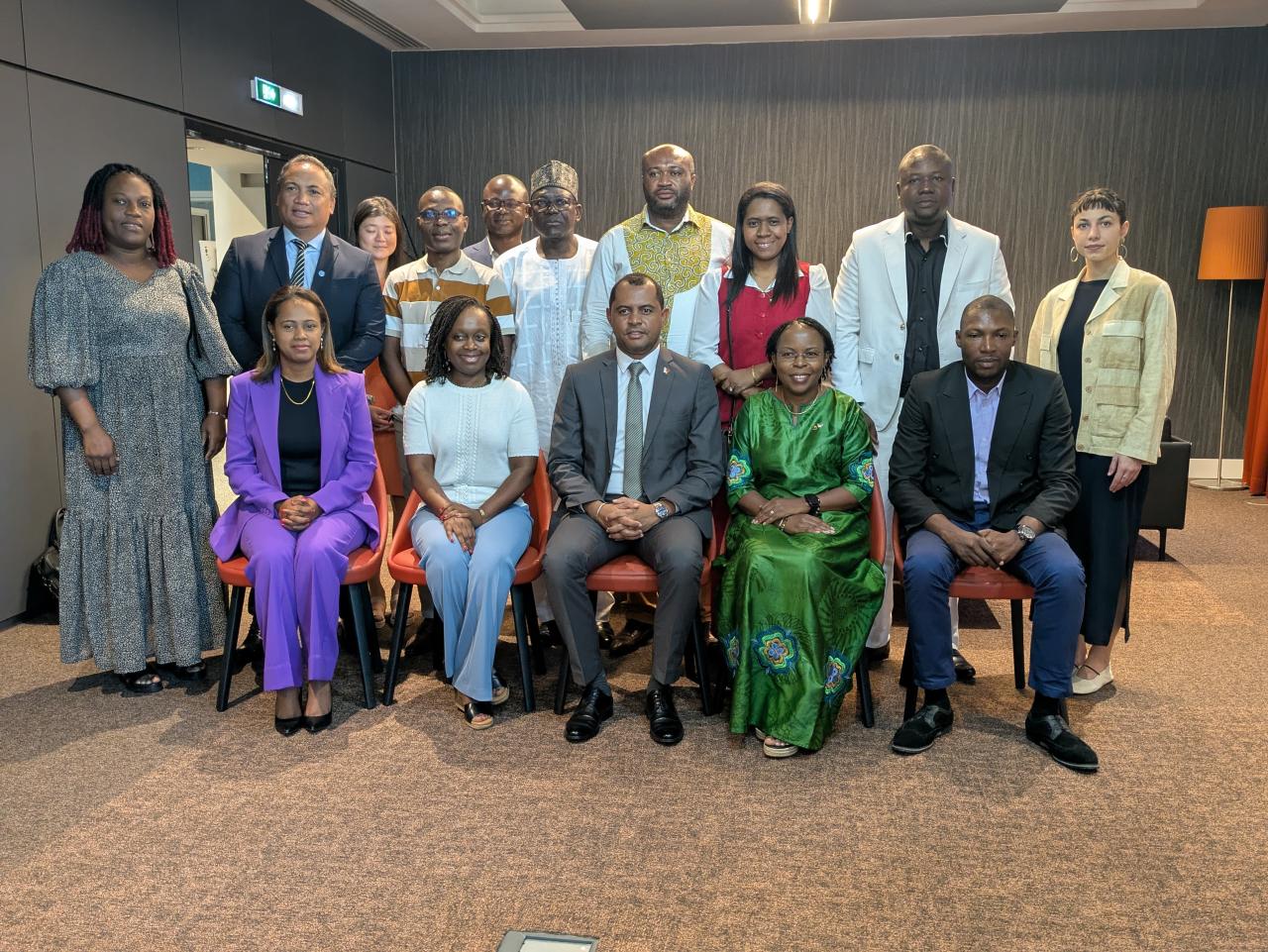
Opening of the National Workshop on Food Systems Transformation
The national workshop formally began with a welcome from the HE François Serge Hajarison
In his welcome, HE François Serge Hajarison reaffirmed the need to operationalize the National Roadmap for Food System Transformation which, he stated, “embodies our ambition to build a Madagascar that is resilient, prosperous and aligned with the 2030 Agenda.”
He added that "With this ambitious plan, Madagascar aims to strengthen its food sovereignty and the sustainable management of its natural resources. We are adopting innovative and inclusive solutions to position ourselves as a regional model of resilience and sustainability."
The Coordinator for the Zero Hunger Coalition, Ms Francine Picard (Shamba Centre for Food & Climate) had the opportunity to welcome the workshop participants. She noted that the Action Plan for the operationalization of the National Roadmap provides “the foundations for food systems that are productive, fair, resilient, and ecologically viable.”
For Ms Picard, its successful implementation will require research based on solid data, an inclusive governance model, and financing adapted to the realities of today and the future. As she reminded participants, “No country, no matter how powerful or prosperous, can face this fight alone. The transformation of our agrifood systems depends on building strong partnerships, creating dynamic coalitions, and fostering effective synergies. By joining forces, harmonizing our actions, and turning a shared vision into concrete goals, we will be able to holistically address the complex challenges before us.”
Understand the Action Plan
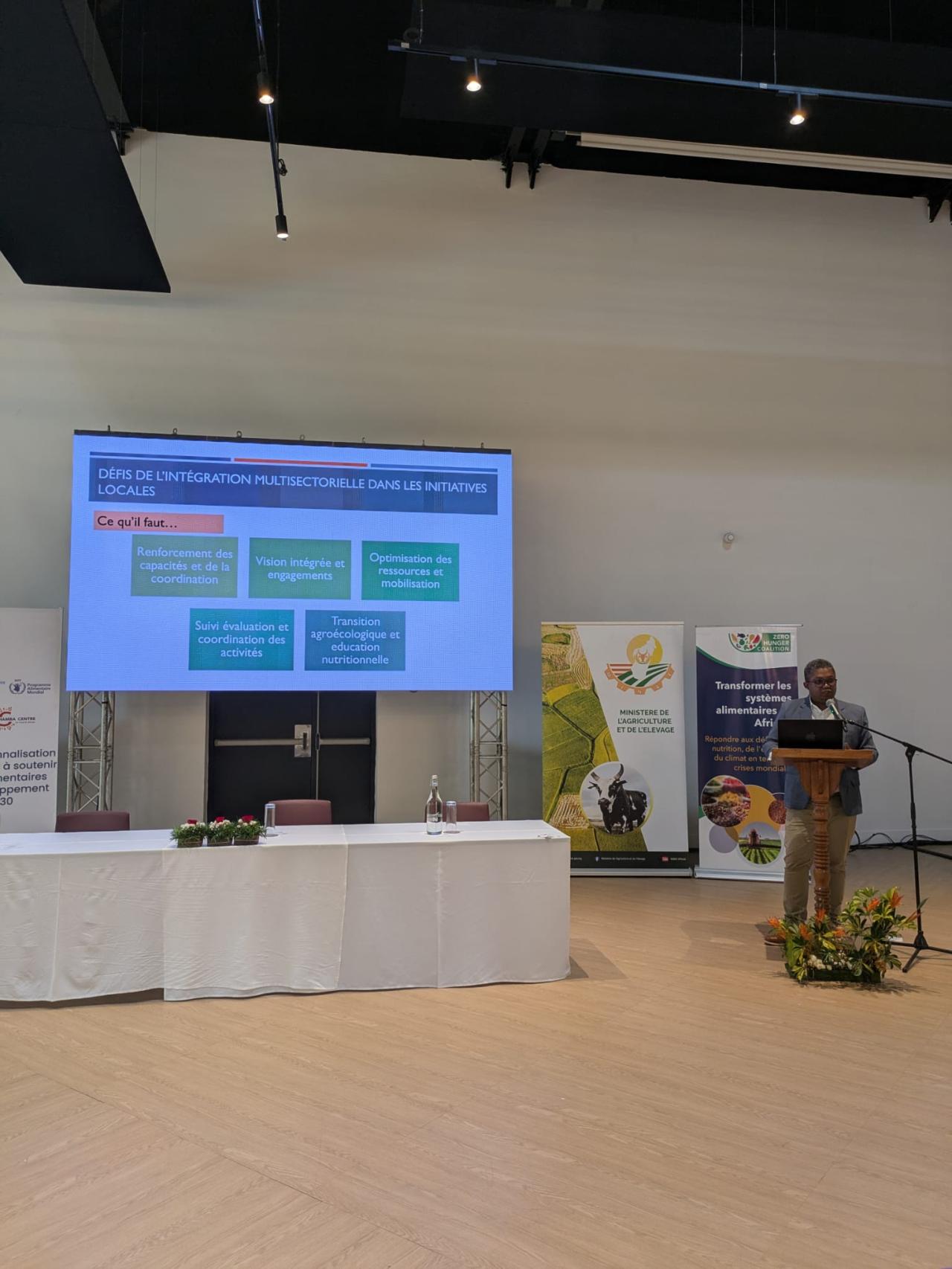
Tahiry Rabefarihy (Consultant National) presented the Action Plan to operationalize the National Roadmap. However, developing and implementing the Action Plan is no easy feat. He called for greater coordination and collaboration, noting, “Coordination is needed on the ground and multi sectoral integration is needed at the local level. We can achieve this through greater collaboration between sectors, more research and innovation and through governance mechanisms.” Doing so optimizes resources and avoids the duplication of effort.
As a first step, a national pilot has been set up with the participation of all stakeholders involved in food systems transformation, from government ministries and development agencies and multilateral organizations, to farmer organizations, NGOs and the private sector.
A number of areas have been identified where interventions will be prioritized. These include: agroecology and sustainable production practices, aquaculture, biofortification, school meals, food banks and the modernization of agriculture infrastructure in rural areas.
As a next step, a set of indicators have been defined for each of the areas.
The evidence & costs supporting the Action Plan
Research from the Zero Hunger Coalition has provided the backbone to the Action Plan. While the Action Plan aims to operationalize the National Roadmap, the Evidence-based and Costed Roadmap offers the data needed to identify the most effective interventions.
Lié Maminiaina (Shamba Centre for Food & Climate) and David Laborde (FAO) presented the findings from the Zero Hunger Coalition. As explained by Ms Maminiaina, the situation in Madagascar is difficult with hunger on the rise and impacting nearly 50% of the population. She noted, “The country is facing the consequences of climate change with prolonged droughts and intense cyclones. And it is in these areas that dietary diversity is the lowest in the country.” Ms Maminiaina also highlighted that agricultural productivity will need to increase in order to feed a growing population, estimated to increase by 10 million by 2030.
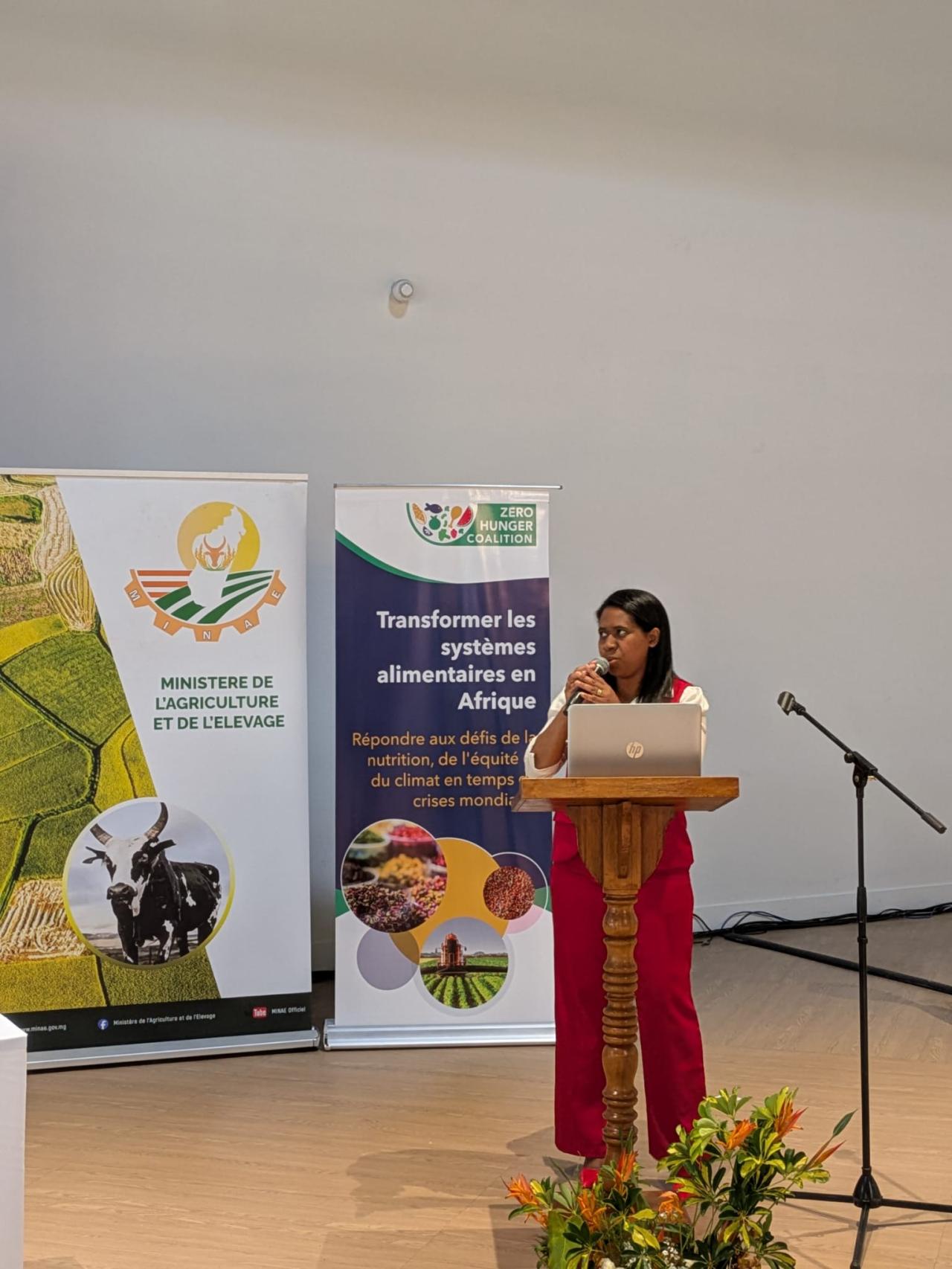
For Mr Laborde, “We can provide a nutritious diet for all, unfortunately, the recent trends in poverty and hunger are taking us further away from this goal. The question remains how we can achieve this goal while also ensuring environmental sustainability.” He explained that the cost modeling developed captures household data, regional and sectoral data as well as national level data.
Short term investments will be needed to reach Madagascar’s long term goals. This will include policy instruments such as subsidies in order to provide for the most vulnerable. “An average of USD 4.5 billion over the next ten years, representing about 25% of the government budget will be needed, of which half should go towards social protection programmes,” highlighted Mr Laborde. However this aligns with the percentage of the population requiring support.
Ms Maminiaina listed a few of the interventions recommended in the Evidence-based and Costed Roadmap including: support to SMEs, increase connectivity in rural areas, limit deforestation, improve weather alerts and promote the production and consumption of fish. Aquaculture offers multiple benefits including nutrition and income addition for farmers.
These interventions focus on areas not addressed by the National Roadmap.
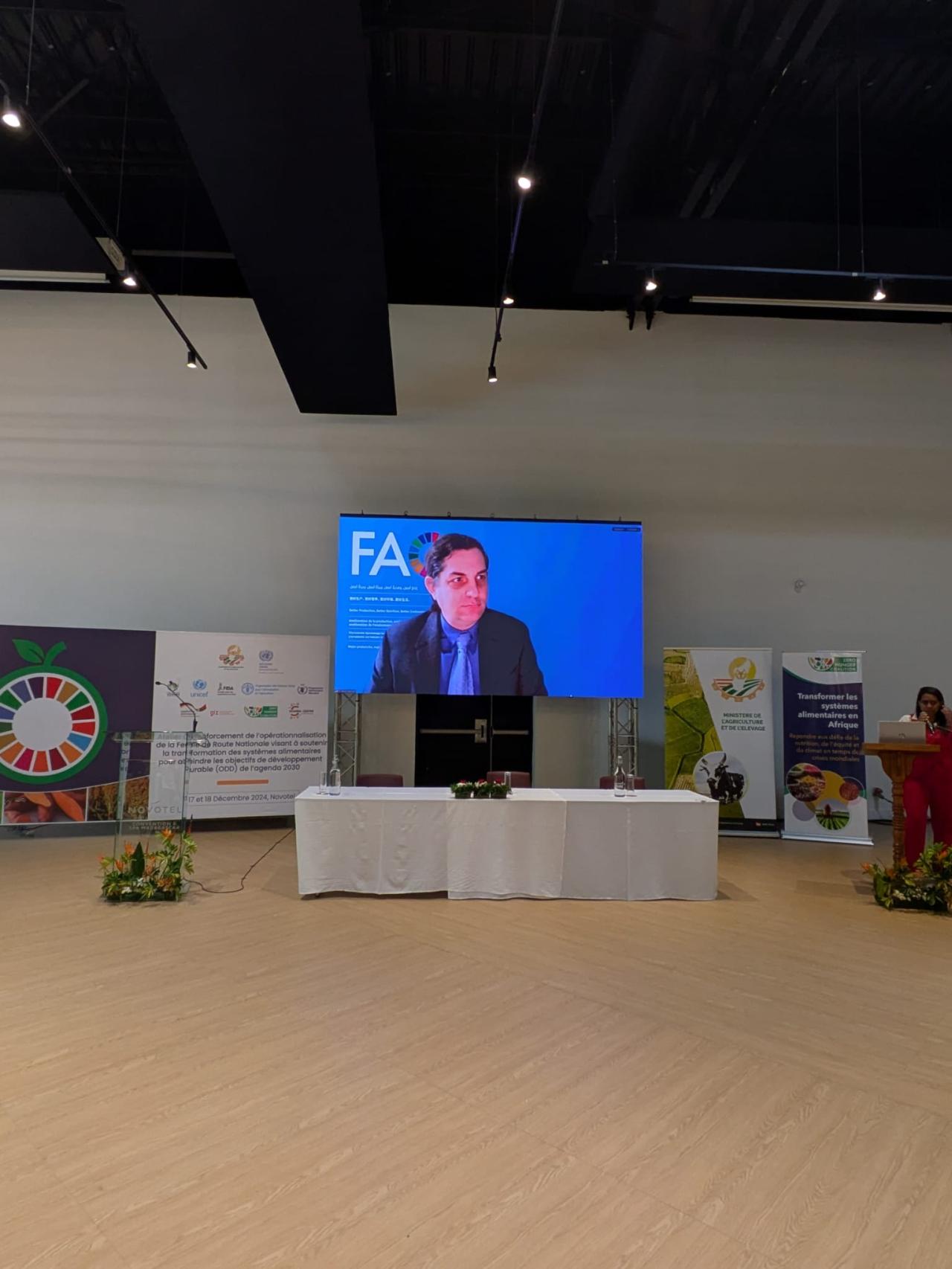
In the discussion that ensued, Mr Laborde highlighted the importance of exchanges between countries. He noted the existence of common problems, such as the management of forests, in both Madagascar and Benin, and the need for new sources of energy.
Mr Laborde also noted the need to mobilize resources given the difference between the requirements in the National Roadmap and the resources available. The private sector is an important, albeit invisible actor which can generate significant revenue sources. “The private sector offers a snowball effect in terms of investment. It can help bring people out of poverty. However, for these investments to occur, certainty is needed.”
Working group discussions
The day ended with participants split into three working groups with the aim of defining and validating the indicators for the National Roadmap. Each of the working groups focused on one of the three axes in the National Roadmap:
- Axis 1: Promoting access to healthy, diverse and nutritious diets
- Axis 2: Promoting governance that supports equitable and resilient livelihoods
- Axis 3: Promoting resilient production given climate change to ensure the sustainable use of natural resources
